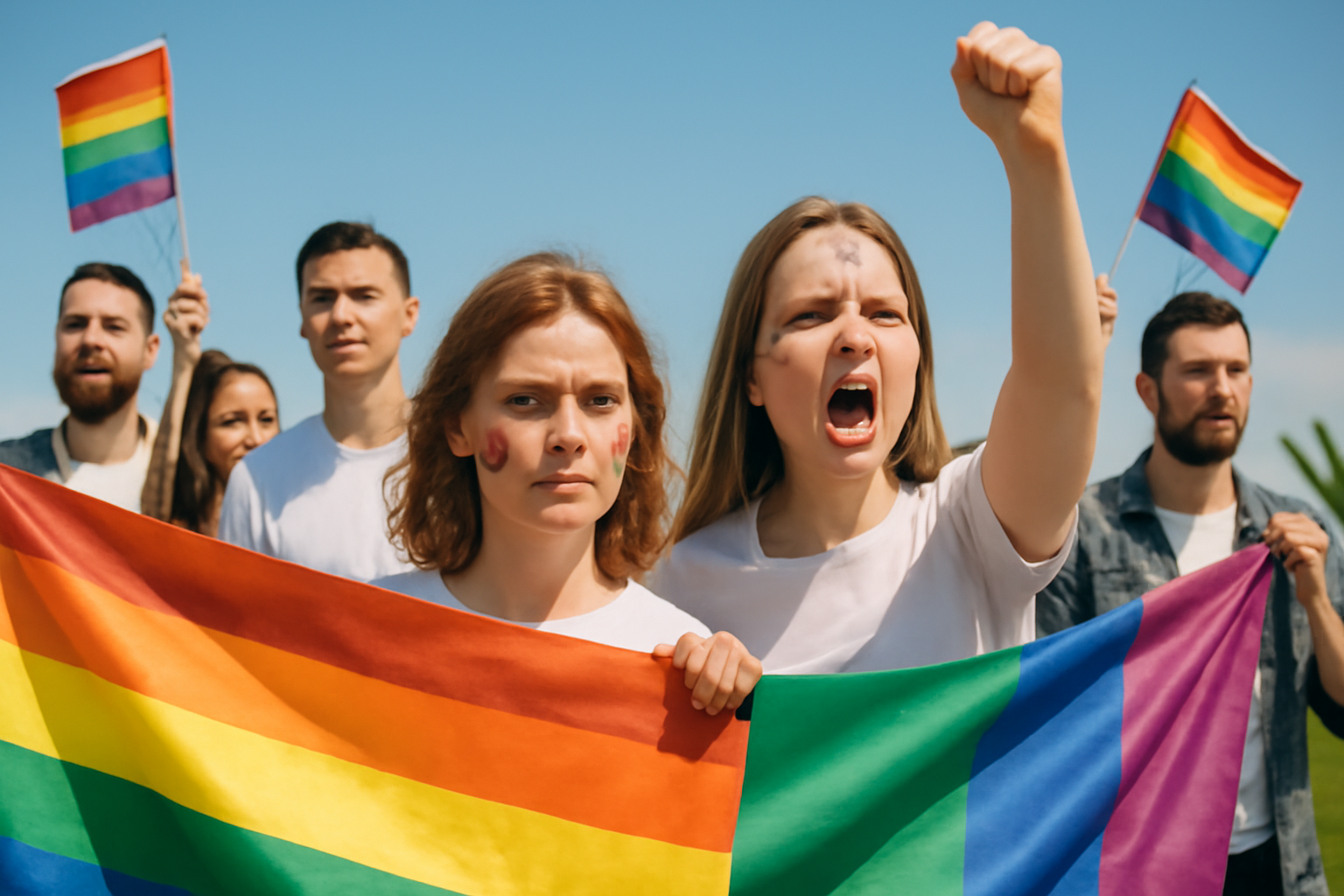
20 European Nations Demand Response to Hungarian LGBTQ+ Pride Ban
In a significant move, 20 European Union member states have united to demand action against Hungary's recent legislation banning LGBTQ+ Pride marches. This controversial law, championed by Prime Minister Viktor Orbán and his ruling Fidesz party, was enacted in March and has sparked widespread concern across the European continent.
The law imposes hefty fines, reaching up to 200,000 forints (approximately £420 or $550), on organizers and participants of events like Budapest Pride. In addition, it grants law enforcement the authority to employ facial recognition technology to identify and penalize individuals attending these gatherings. Such measures have raised alarms about potential breaches of privacy and civil liberties.
In a unified statement, the governments of 20 EU countries expressed their dismay at Hungary's legislative actions, which they believe infringe upon the fundamental rights of LGBTQ+ citizens. They emphasized their "deep concern" over the recent legislative and constitutional amendments passed by the Hungarian parliament, which undermine the fundamental values of human dignity, freedom, equality, and respect for human rights. The coalition of nations is urging Hungary to reassess its measures and ensure the protection of human rights and fundamental freedoms for all its citizens, in line with international obligations.
The call to action was endorsed by representatives from Austria, Belgium, Cyprus, the Czech Republic, Denmark, Estonia, Finland, France, Germany, Greece, Ireland, Latvia, Lithuania, Luxembourg, Malta, the Netherlands, Portugal, Slovenia, Spain, and Sweden. This broad coalition highlights the gravity of the situation and the shared values of the European Union regarding human rights and equality.
The implementation of this ban has ignited protests throughout Hungary, including a notable "Gray Pride" march. Advocates for LGBTQ+ rights argue that the Hungarian government's justification for the ban, purportedly to protect children, is a guise to distract from pressing domestic issues. They contend that the legislation does not safeguard minors but instead marginalizes and stigmatizes the LGBTQ+ community.
Legal experts and human rights activists have voiced strong opposition to the ban, pointing out its detrimental impact on the transgender and intersex communities. One lawyer criticized the legislation for "humiliating" these groups and curtailing their rights. In solidarity, 22 embassies, including those of France, Germany, and the United Kingdom, have co-signed an open letter condemning the ban for restricting the right to peaceful assembly and the freedom of expression.
The backdrop to this development includes Hungary's recent constitutional changes, which assert the recognition of only two sexes, echoing similar policies enacted by the former U.S. administration under President Donald Trump. These changes have been met with international criticism, reflecting a broader struggle over LGBTQ+ rights on the global stage.
As the situation unfolds, it remains crucial for advocates and citizens alike to engage in meaningful dialogue and advocacy. The actions of these 20 EU countries signify a collective stand against policies that threaten the rights of LGBTQ+ individuals and underscore the importance of solidarity in the fight for equality and justice.
Share your thoughts with us! We invite our community to discuss this topic in the comments below, and we encourage everyone to maintain a respectful and constructive discourse.
Related Posts
Triumphant Trans Woman Wins Legal Battle and Inspires Others to Stand Up for Their Rights
Breaking new ground: a landmark victory in transgender rights After battling in courtrooms and enduring endless challenges, Diana Portillo, a transgender woman, has secured a monumental victory in her decade-long fight against workplace discrimination. The result? Nearly $1 million awarded in a historic settlement. But this isn't just a win on paper—it represents a powerful precedent in combati [...]
Pride Month in Latin America: Protests and Demands for Equality
**Celebrating Pride and advocating LGBTQ+ rights in Latin America** Pride Month in Latin America was a lively mix where celebration met activism. Communities united, not just throwing a party but making a stand—demanding equality and pushing governments toward better protection and rights recognition. Throughout Latin America, pride events erupted in marches and cultural displays, each with a c [...]
Transgender Erasure Actions Implemented by National Park Service
```html Trump administration's impact on national park service and transgender recognition The Trump administration made notable moves in undermining transgender representation, which included directing agencies like National Park Service not include "T" and "Q" when they refered “LGBTQ” in any official communication. This move seems part a broader plan by this administration aimed at reducin [...]